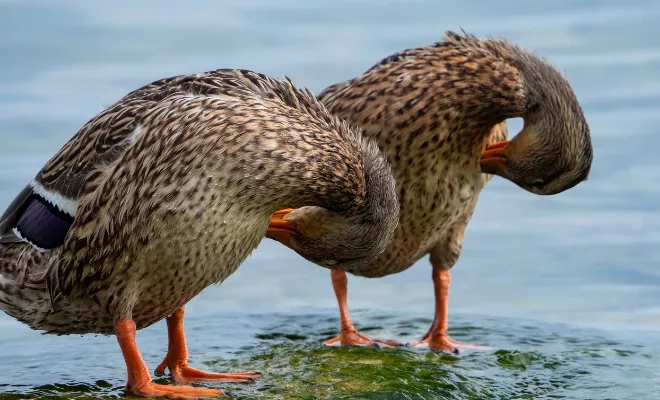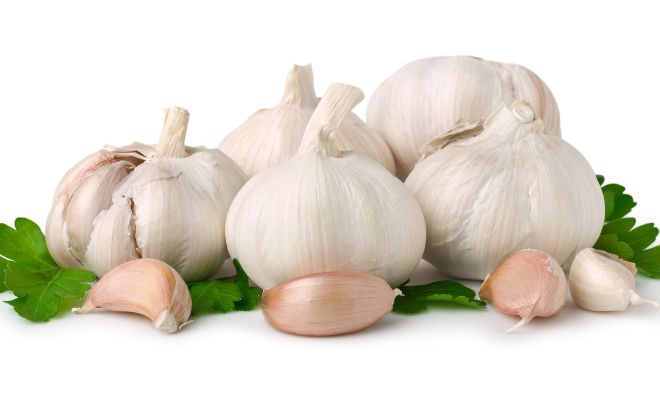Why Did My Duck Die? Old Age, Infections, Diseases, and More to Blame!

Why did my duck die? Ducks can die for various reasons. For instance, diseases, poor nutrition, environmental factors, predators, trauma, old age, genetic issues, and stress. It’s essential to provide ducks with a clean and safe environment. Also, proper nutrition, and protection from predators to ensure their safety are crucial.
But don’t worry about thinking too much about it! I’ll talk about why your duck might pass away and offer tips on ensuring your duck stays healthy in this article. Make sure you are reading it without pausing any section.
Table of Contents
Why Did My Duck Die? 11 Reasons to Explain!

Every life eventually reaches its end. Your ducks might die naturally or due to specific reasons. Let’s talk about the potential reasons for your ducks’ passing.
1. Infections and Diseases
One of the most common reasons for duck mortality is infections and diseases. Ducks can suffer from a variety of ailments. The root is infection and diseases that make them die!
Let’s have a look at some of the fatal diseases for ducks:
- Avian Influenza: A highly contagious viral disease. It can cause severe respiratory distress, decreased egg production, and high mortality rates in affected flocks.
- Botulism: An intoxication is caused by the ingestion of bacteria-produced toxins in contaminated water. It can lead to paralysis and death in ducks.
- Duck Plague: A highly infectious and often fatal viral disease. It affects ducks, causing symptoms such as sudden death, diarrhea, and nervous system disorders.
- Respiratory Infections: Ducks can be afflicted by respiratory infections. It can manifest as coughing, sneezing, and difficulty breathing. These infections are often caused by bacteria or viruses. It’s what can spread quickly among a flock. Ducklings are especially susceptible, given their delicate respiratory systems.
- Fungal Infections: Fungal infections, such as Aspergillosis, can affect ducks when they inhale spores of fungi. These infections can lead to respiratory distress, listlessness, and poor growth. Ducklings can be particularly vulnerable to this. Especially in damp and poorly ventilated environments.
- Gastrointestinal Disorders: Ducks can also suffer from gastrointestinal disorders. It may lead to digestive problems, diarrhea, and a decline in overall health. Various factors can cause these disorders. For example, inappropriate diet, water contamination, or harmful bacteria. Ducklings are more susceptible to gastrointestinal issues due to their developing digestive systems.
Related Reading: Common Duck Diseases You Should Know
2. Parasites

The external and internal parasites pose a considerable threat to duck health. Ducks can suffer from external parasites. For example – mites and lice can cause skin irritation, feather loss, and stress.
Meanwhile, internal parasites, such as worms, can compromise the digestive system. And also for the overall well-being of ducks.
3. Nutritional Deficiencies
Proper nutrition is paramount for ducks. Deviations from their dietary requirements can result in health complications and eventual demise. Ducks need a well-balanced diet rich in proteins, carbohydrates, vitamins, and minerals.
Inappropriate or spoiled food can lead to digestive problems and nutritional deficiencies.
4. Choking Hazard
Ducks can potentially die from choking if they ingest foreign objects. They become lodged in their throats. It obstructs their airway or prevents them from swallowing and digesting food properly.
When they can’t remove or cough up the obstruction, it can lead to a life-threatening situation. It can potentially cause the duck to die from lack of air.
So, it’s essential to keep their environment free from small items they might accidentally swallow.
5. Poisonous Food

Ducks can sadly suffer harm from chowing down on bad things for them. Think salt, avocados, raw potatoes, and the like. These treats may look tasty, but for ducks, they can be pretty harmful.
So, let’s remember to keep our duck friends safe by offering them suitable grub.
Related Readings: What Not To Feed Ducks
6. Improper Environment
Improper habitat and environment sometimes play a role in making your ducks die. For instance, extremely hot or cold weather can be really tough on ducks and, in some cases, even fatal.
When it gets super hot, they can overheat and get dehydrated because they don’t sweat like humans. They’ll pant because they’re overheated and feeling uncomfortable.
In freezing cold, they can suffer from frostbite and hypothermia. So, it’s essential to ensure they’re safe and comfy in all kinds of weather to keep them healthy and happy.
7. Accidental Drowning
Ducks are naturally drawn to water. But accidental drowning can occur if they become trapped, fatigued, or entangled in water bodies. Sadly, these situations can lead to their death.
8. Severe Injury
Ducks can get hurt in different ways, like falling or being in accidents. These injuries can be tough for them because they can damage their insides or cause bleeding.
Sometimes, these injuries can be so bad that they can’t survive. So, it’s important to watch them to prevent accidents and keep them safe.
9. Water Quality

Ducks are natural waterfowl, and the quality of their aquatic habitat directly affects their well-being. Poor water quality can give rise to waterborne diseases and infections.
One common waterborne disease is avian botulism. It’s often found in water with decaying organic matter. Ducks can ingest the toxin while feeding or swimming in contaminated water.
So, it’s important to ensure clean water for your feathered friend.
10. Predatorial Threats
Predatory threats, like foxes, raccoons, dogs, and birds of prey, loom over ducks. Especially when they lack adequate protection.
Here, you can see how ducks died because of predators:
Related Readings: How To Keep Your Backyard Ducks Safe From Predators
11. Aging Over Time
Ducks, just like people and other animals, have a natural lifespan. As ducks get older, there comes a time when they may die from old age, like our grandparents or older folks. It’s a part of the circle of life for our feathered mates.
How Do I Know If My Duck Is Dying?
Recognizing signs that your duck may be dying is quite important. Here’s a sign to know they’re about to die:
- Lethargy: If your duck is unusually inactive, weak, or unable to stand.
- Loss of Appetite: Refusing to eat or drink can indicate health issues.
- Breathing Issues: Labored or irregular breathing may signal respiratory problems.
- Abnormal Droppings: Changes in color, consistency, or frequency of droppings may be concerning.
- Isolation: Ducks withdrawing from the flock or seeking isolation may be unwell.
- Abnormal Vocalization: Unusual sounds or lack of usual quacking could be a sign.
- Visible Injuries: Check for injuries, wounds, or signs of trauma.
- Disheveled Feathers: Poor feather condition may suggest health problems.
How to Save A Dying Duck? Here are 7 Ways to Prevent Sudden Death

To prevent sudden death in ducks, it is important to put in place a series of proactive measures:
1. Proper Living Place
Clean and dry spaces prevent duck illness. Ensure fresh air and tidy living areas. Keep ducks calm to avoid infections. Prioritize cleanliness for duck health.
Let’s have a look at ducks’ space requirements at different ages.
| Age of Ducks | Habitat Condition | Space Requirements | Temperature |
|---|---|---|---|
| Ducklings | Brooder or Coop | 1 Square foot for each | 80-90°F (27-32°C) |
| Juveniles | Pen or Enclosure | 3 Square feet for each | 70-75°F (21-24°C) |
| Adult Ducks | Coop and Outdoor Area | Plenty of space | Tolerant of various temperatures, but usually comfortable between 20-75°F (-6 to 24°C) |
2. Providing Balanced Diet
Make sure your ducks always have clean water to drink and eat a balanced diet to keep their tummies healthy. Give them fresh water and the right duck food to keep them strong and full of energy. This helps prevent problems with their stomachs. Taking care of their food and water keeps your ducks happy and healthy!
3. Proper Monitoring
Vigilantly monitor your ducks and manage parasites adequately to avert complications and mortality.
4. Maintaining Environmental Factors
Offer adequate shelter and clean, dry bedding to protect ducks from the elements. Avoid overcrowding to reduce stress and the risk of disease transmission.
5. Providing Safe Access to Water

Ensuring they have safe access to water. It has to be free from hazards or obstacles. Monitoring swimming activities is important to prevent accidental drowning.
6. Water Quality
Regularly refresh and cleanse the water in ponds or pools to keep it uncontaminated. Stagnant water can breed harmful bacteria, emphasizing the need for diligent water management.
7. Ensuring a Secure Place
Use secure enclosures, fencing, and coops to safeguard ducks from predators. Defending ducks from potential threats is a proactive measure to prevent unnecessary fatalities.
Related Reading: Saving Baby Ducks From Death
Bottom Line
So, if your duck dies, it could be due to various reasons. Infections like avian influenza, botulism, and respiratory issues are some possibilities. Problems with the stomach and parasites can also make ducks sick. Make sure they eat well and have a balanced diet.
Also, check their environment for extreme temperatures and clean water. Ducks might face danger from predators like foxes. Sometimes, ducks can pass away because they get old. Always take good care of your ducks to keep them healthy.
Resources & References:
- https://www.backyardchickens.com/threads/duck-died-suddenly-any-idea-what-caused-it.1339712/
- https://www.backyardchickens.com/threads/why-did-my-duck-die.792481/







HEARTBROKEN
My daughter had raised 2 Pekin ducks. They were full grown, had their feathers and were ready for release. She has a friend that raises dogs on a large amount of land in Ocala, Fl. It is about a 2 hour drive. The land is fenced and has a large lake. He has ducks already. He offered to give them a home. They left this morning to take them. She also raised a Miscovey with them and they were close friends. She transported them in a plastic bin with straw in the bottom and the top had large holes. They checked on them half way and they were fine. When she got there both the white ducks were dead. Can anyone shed light on what may have happened please.